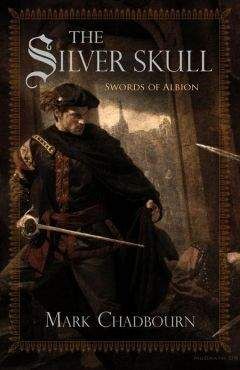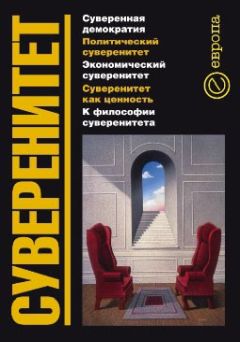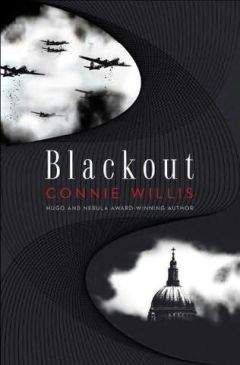В. Каушанская - Сборник упражнений по грамматике английского языка
1. Already when, at the age of thirteen, fourteen and fifteen, he began looking in the papers, which, being too worldly, had never been admitted to his home, he found that mostly skilled help was wanted. (Dreiser)2. He had a feeling in his heart that he was not as guilty as they all seemed to think. (Dreiser)3. He thought at first that having seen him at the moment he had struck Roberta, they had now come to take him. (Dreiser)4. Her voice sounded to her as if she had shouted, but the man to whom she had been speaking, evidently not hearing a word she had said, continued staring thoughtfully into his beer. (Caldwelt)5. He decided later that if she did not want him to know what she was doing, perhaps it was best that he should not. (Dreiser)6. In view of this, Mrs. Griffiths, who was more practical than her husband at all times, and who was intensely interested in Clyde's economic welfare, as well as that of her other children, was actually wondering why Clyde should of a sudden become so enthusiastic about changing to this new situation, which, according to his own story, involved longer hours and not so very much more pay, if any. (Dreiser)7. She had no idea how long she stood there in the gradually failing light, and the next thing she remembered doing was running to the telephone. (Caldwell)8. However, as he began to see afterwards, time passed and he was left to work until, depressed by the routine and meager pay, he began to think of giving up this venture here and returning to Chicago or going to New York, where he was sure that he could connect himself with some hotel if need be. (Dreiser)9. The table was in no way different from any other, and it was not more advantageously placed, but because the oldest residents sat there it was looked upon as the most desirable place to sit, and several elderly women were bitterly resentful because Miss Otkin, who went away for four or five months every summer, should be given a place there while they who spent the whole year in the sanatorium sat at other tables. (Maugham)10. As soon as he finds a foe near, no matter what he is doing, a well-trained Cottontail keeps just as he is and stops all movement, for the creatures of the woods are of the same colour as the things in the woods and catch the eye only while moving. (Seton Thompson)11. Then by some accident of association there occurred to him that scene when Emma had told him of his mother's death, and, though he could not speak for crying, he had insisted on going in to say good-bye to the Misses Watkin so that they might see his grief and pity him. (Maugham)12. He was developing a sense of humour, and found that he had a knack of saying bitter things, which caught people on the raw; he said them because they amused him, hardly realising how much they hurt, and was much offended when he found that his victims regarded him with active dislike. (Maugham)13. When Winifred came down, and realised that he was not in the house, her first feeling was one of dull anger that he should thus elude the reproaches she had carefully prepared in those long wakeful hours. (Galsworthy) 14. Behind him the nurse did he knew not what, for his father made a tiny movement of repulsion as if resenting that interference; and almost at once his breathing eased away, became quiet; he lay very still. (Galsworthy)15. The endless rhythmical. noise covered Annette and held her for a while motionless and appalled. (Murdoch)16. When they had passed through the Red Sea and found a sharp wind in the Canal, Anne had been surprised to see how much the men who had looked presentable enough in the white ducks in which she had been accustomed to see them, were changed when they left them off for warmer clothes. (Maugham)17. It was not raining, but it had been and a street lamp some way off streaked the roadway with reflections. (Murdoch)18. He knew her so well that she assumed he always knew when she was lying and so that made it all right. (Murdoch)19. The brothers, in whom there was apparent, as soon as they had overcome their initial animal terror enough to display ordinary human characteristics, an exceptional degree of parsimony, were pleased with their junkfilled room, which they were able to rent for eight shillings a week, arid whose bric-a-brack, once a senseless jumble, they soon set in order, giving to. each decrepit object a proper use and significance. (Murdoch)20. Soon, however, although the old woman never ceased to inspire in her a kind of awe which nearly amounted to terror, she fell into paying her no more attention, for practical purposes, than if she had been another quaint piece of furniture. (Murdoch)21. But such criticisms as she found herself obscurely tending to make of Annette's deportment had never yet been formulated, and she had not troubled to ask herself whether they were just and reasonable or not perhaps the expression of a sort of envy of a younger and in some ways luckier woman such as Rosa knew herself to be well capable of feeling. (Murdoch)22. If I lived here Г should have to get to know what you do in a big forest, if you should be lost. (Shute)23. Rainborough was not aware that he had at any time suggested to Miss Casement that he was likely to make such proposals, though he might possibly have dropped some remark which could be so interpreted in the early days of his appointment. (Murdoch)24. Although it happened to him so many times, Rainsborough could never resign himself to the idea that people should visit him simply in order to find out all that he knew about Mischa Fox. (Murdoch)25. Mischa approached, and it seemed to the two who were watching a long time before he reached her. (Murdoch)
Exercise 13. Insert it or there in the following sentences.
1. __ was too cold to sit down, but 1 paused every now and then to lean on the parapet... (Murdoch)2. __ was no mist here and a great vault of clear stars hung over the city with an intent luxurious brilliance. (Murdoch)3. In what I could discern of the Square __ seemed to be no one about. (Murdoch)4. __ took me several minutes to collect myself. (Murdoch)5. __ did not occur to me to reflect that there was anything illogical in this and indeed __ was nothing illogical. (Murdoch)6. He stood and watched her, sorry. But __ could be no altering it. 7. I kept my face stern, but __ was so much light within, __ must have showed a little. (Murdoch)8. __ was still nearly an hour to wait before their plane was due to leave... (Murdoch)9. __ was a little Hurry as Georgie dropped her handbag and Honor picked it up for her. (Murdoch)10. __ ihen occurred to me that just this was precisely what I might be able to manage. (Murdoch)11. Between Brangwen and Skrebensky __ was an unbridgeable silence. Sometimes the two men made a slight conversation, but __ was no interchange. (Lawrence)12. A terrible energy pervaded Antonia at this time and __ tired me extremely to be with her. (Murdoch)13. I say this in case you should after last night's exhibition, feel any apprehension of possible violence to your brother. I assure you sincerely that __ : is no such possibility. __,. only remains for me to apologize to you very humbly... (Murdoch)
Exercise 14. Translate the following sentences into English and point out the difference in the way subordinate clauses are introduced in Russian and in English.
1. Князь Багратион... сказал «хорошо» с таким выражением, как будто все то, что происходило и что ему сообщали, было именно то, что он уже предвидел. (Л. Толстой)2. В начале действий он знал только то, что по всему его полку стали летать ядра и гранаты... (Л. Толстой)3. Но одна мысль о том, что он боится, снова подняла его. (Л. Толстой)4. На слова Жеркбва некоторые улыбнулись, как и всегда ожидая от него шутки; но, заметив, что то, что он говорил, клонилось тоже к славе нашего оружия и нынешнего дня, приняли серьезное выражение, хотя многие очень хорошо знали, что то, что говорил Жерков, была ложь, ни на чем не основанная. (Л. Толстой)5. «И что за глупость все то, что я рассказываю, как будто это меня интересует, — думал дипломат, взглядывая на счастливые лица любовников,— вот это счастие!» (Л. Толстой)6. «Не для тебя это счастье, — говорил ему какой-то внутренний голос. — Это счастье для тех, у кого нет того, что есть у тебя». (Л. Толстой)7. «Ах, Наташа!» — сказала Соня восторженно и серьезно, не глядя на свою подругу, как будто она считала ее недостойною слышать то, что она намерена была сказать... (Л. Толстой)8. Она чувствовала, что то, что говорила Соня, была правда... (Л. Толстой)9. «Но что забавнее всего, — сказал он, вдруг добродушно засмеявшись, — это то, что никак не могли придумать, как ему адресовать ответ?» (Л. Толстой)10. Несколько минут после того, как проехал государь, дивизион павлоградцев потребовали вперед. (Л. Толстой) 11. Возвращаясь домой, князь Андрей не мог удержаться, чтобы не спросить молчаливо сидевшего подле него Кутузова о том, что он думает о завтрашнем сражении? (Л. Толстой)12. «На горе пикет, ваше сиятельство, все там же, где был с вечера»,—доложил Ростов... (Л. Толстой)
SEQUENCE OF TENSES
Exercise I. Use the appropriate form of the verb.
1. Cowperwood realized... that he __ making a very remarkable confession, (is, was) (Dreiser)2. She scarcely realized what __ happening, (is, was) (Dreiser)3. Then all at once he remembered what the program __ be. (will, would) (Warren)4. Little Hans was very much distressed at times, as he was afraid his flowers __ think he — forgotten them, (will, would; has, had) (Wilde)5. Rosa told herself that this __ the day that __ decide her fate, (is, was, will, would) (Murdoch)6. She realised that he __ trying to convey to her that he __ lonely, (is, was; is, was) (Dreiser) 7. Mrs. Sohlberg felt that this __ going to be a wonderful evening, (is, was) (Dreiser)8. He felt sure he __ sleep now. (shall, should) (Eliot)9. He thought how beautifull and serene their life __ be. (will, would) (Warren)10. I was thinking that it __ be interesting to start a little gas company in one of these outlying villages that __ growing so fast, and see if we __ not make some money out of it. (may, might; are, were; can, could) (Dreiser)11. Each fresh noise crept through her senses like an enemy who __ found a gap in the walls of a beleaguered city, (has, had) (Bennett)12. Lunch came just as they were off Sheerness. He didn't feel so hungry as he thought he __ be. (shall, should) (Jerome K. Jerome)13. He knew that in a week or two, at most a month, the actual campaign __ begin, (will, would) (Mailer) 14. When I found Mr. Bennett __ left his house, I thought I __ find him here. Of course, he had told me that he __ consult you. (has, had; shall, should; will, would) (Qonan Doyle) 15. Brother Sumpter asked Jack Harrick how he __ to day. (is, was) (Warren) 16. We got to Waterloo at eleven and asked where the elevenfive __ from. The porter who took our things thought it __ go from number two platform, while another porter __ heard a rumour that it __ go from number one. The station-master, on the other hand, was convinced that it __ start from the local. We went upstairs and asked the traffic superintendent, and he told us that he __ just seen it at number three platform, (starts, started; will, would; has, had; will, would; will, would; has, had) (Jerome K. Jerome) 17. I was thinking that if any stranger __ in here now, he __ take us for man and wife, (come, came; will, would) (Shaw) 18. He knew that he __ been to college, (has, had) (Warren)
Exercise 2. Use the appropriate form of the verb.
1. I am just passing through Chicago... and I thought you __ tell me a little about the city from an investment point of view. (may) (Dreiser)2. He said he __ be obliged to run on to Pittsburg for thirty six hours but he __ back on the third day. (may, to be) (Dreiser)3. It had not yet occurred to her that she __ get money for the locket and ear-rings which she __ with her. (may, to carry) (Eliot)4. I thought you __ better sense, (to have) (Dreiser)5. Sir Wilfrid knew, from the frequency with which she used her handkerchief, that the tears __ down her cheeks, (to run) (Marryat)6. She [Dinah] hesitated no longer, but opening her own door gently, went out and tapped at Hetty's. "I knew you __ not in bed, my dear," she said, (to be) (Eliot) 7. We came to this part of the country in the hope that the bracing air... __ a good effect upon him. (to have) (Conan Doyle)8. The door opened suddenly, and a young fellow came in, with the air of one who __ the master, (to be) (Conan Doyle)9. She clung to the belief that he __ so fond of her that he __ never __ happy without her; and she still hugged her secret that a great gentleman __ her. (to be, to be, to love) (Eliot) 10. At ten o'clock he telephoned again, saying that he __ his mind, (to change) (Dreiser)11. Mr. Jackson departed upstairs on his errand, and immediately returned with a message that Mr. Fogg __ Mr. Pickwick in five minutes, (to see) (Dickens)12. It chanced... that Mr. Bennett received a letter from a fellow-student in Prague, who said he. __ glad to have seen Professor Pusbury then, (to be) (Conan Doyle)13. I thought I __ well, being tired, (to sleep) (Jerome K. Jerome)14. We asked if there __ anything further that we __ do for him. (to be, can) (Jerome K. Jerome)15. I hailed them and asked if they __ tell me the way to WQllingford Lock; and I explained that I __ for it for the last two hours, (can, to look) (Jerome K. Jerome)16. I invited them all to come and spend a week with me, and my cousin said her' mother __ pleased to see them, (to be) (Jerome K. Jerome)17. His correspondent announced that he __ unexpectedly __ to London, (to summon — passive) (Collins)18. He says he __ free to-morrow (to be).




